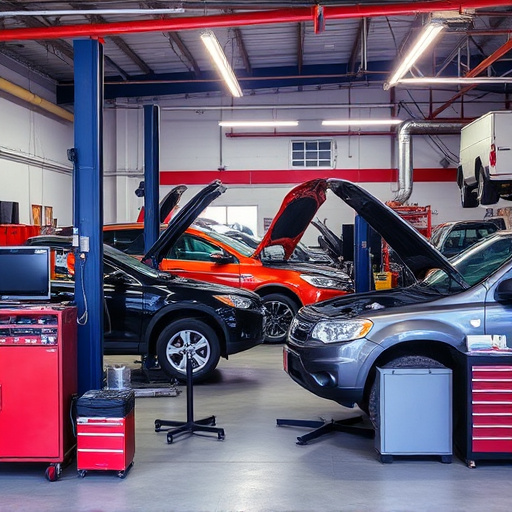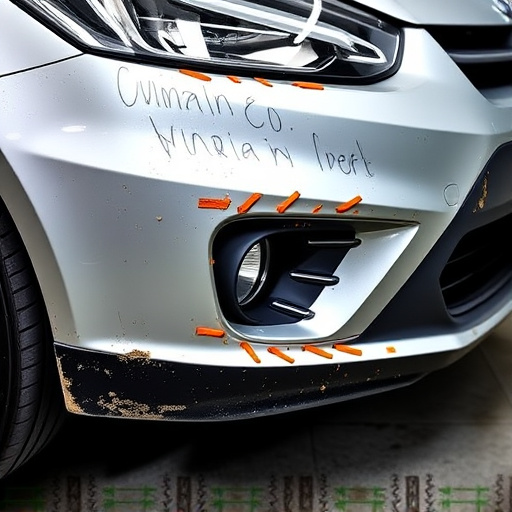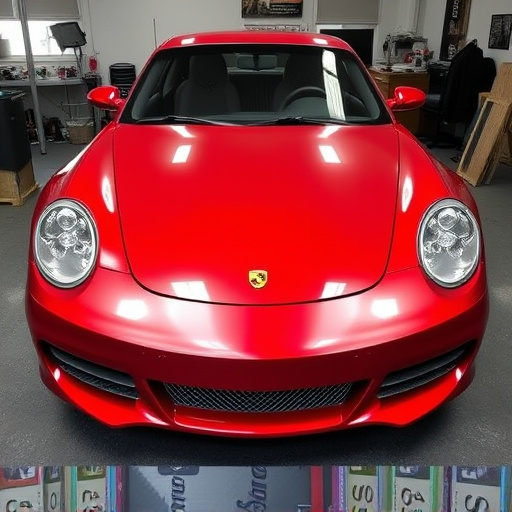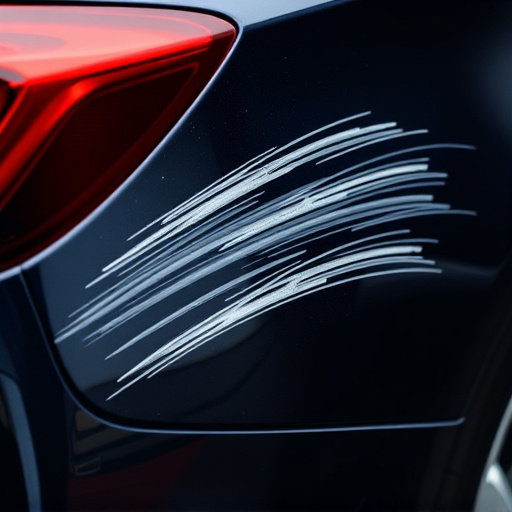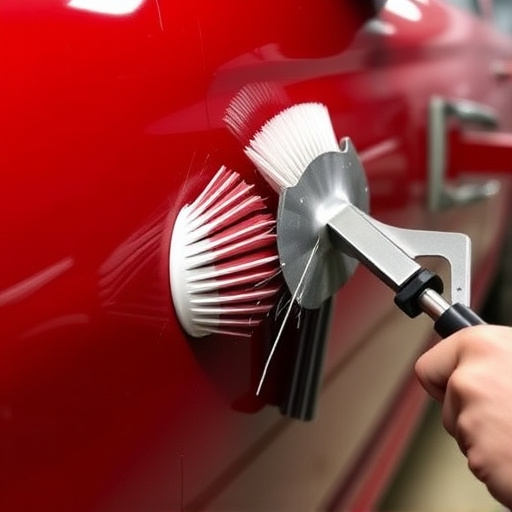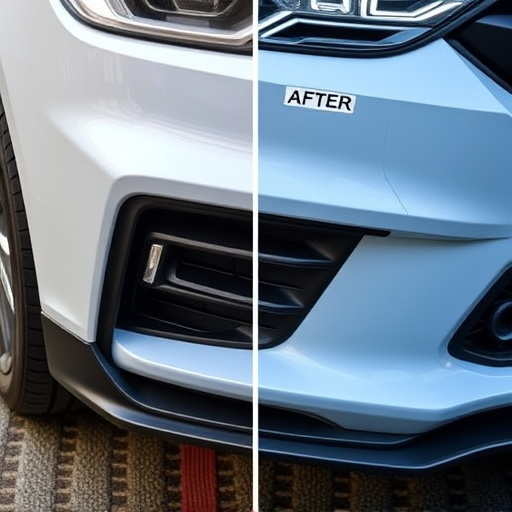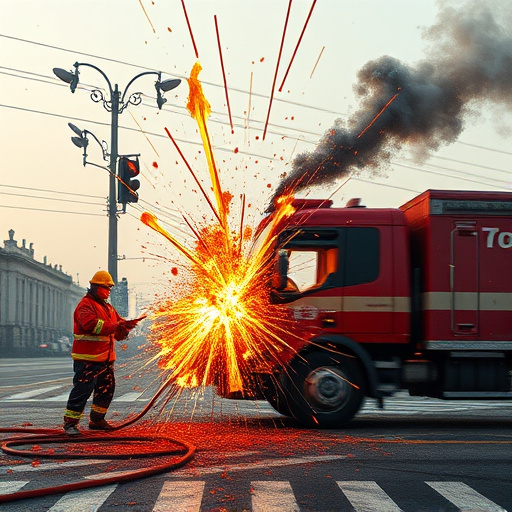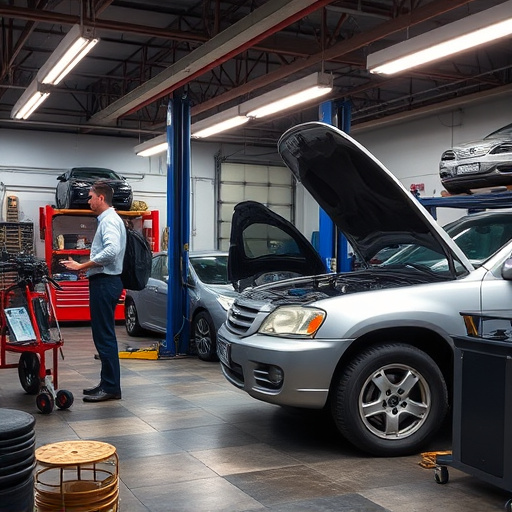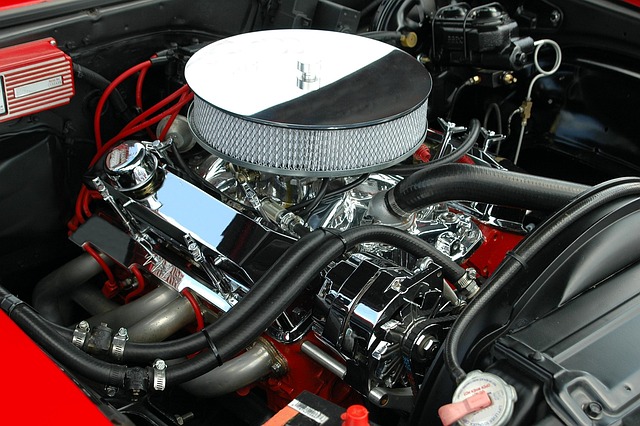The automotive refinishing industry has undergone a remarkable transformation due to technological innovations, moving from manual to automated processes. Modern tools like robotic systems, digital design tools, and AI ensure precise, consistent finishes, boost productivity, and promote environmental sustainability. Automation, robotics, AR, VR, and AI-driven predictive maintenance are shaping the future of automotive refinishing, promising higher quality services at competitive rates and enhanced customer satisfaction.
The automotive refinishing industry is undergoing a significant transformation, driven by advanced tools and game-changing technologies. From robotic systems automating repetitive tasks to AI-powered paint matching, these innovations are revolutionizing how cars are repaired and restored. This article explores the evolution of automotive refinishing tools, highlights cutting-edge technologies in action, and delves into future trends that promise to further reshape this dynamic sector.
- The Evolution of Automotive Refinishing Tools
- Game-Changing Technologies in Action
- Future Trends and Their Impact on the Industry
The Evolution of Automotive Refinishing Tools
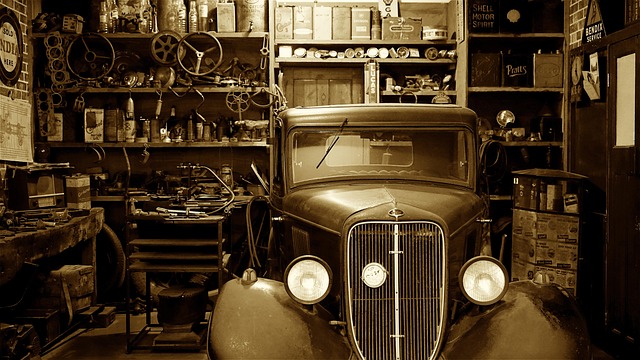
The automotive refinishing industry has undergone a remarkable transformation, largely driven by technological advancements. In the past, traditional methods and tools were often manual, time-consuming, and required significant skill for precision work. Sanding, painting, and finishing processes relied heavily on human dexterity, leading to inconsistencies in quality. However, with the advent of advanced technologies, the industry has seen a dramatic shift towards more efficient and precise automotive refinishing practices.
Modern tools have revolutionized car repair services, offering solutions that streamline various stages of the refinishing process. Automated and robotic systems now handle complex tasks such as surface preparation, priming, and painting, ensuring consistent results. Additionally, innovative materials and techniques in auto glass repair and auto detailing further enhance the precision and durability of finishes. These advancements not only speed up production but also improve overall quality, setting new standards in the industry and pushing the boundaries of what’s possible in automotive refinishing.
Game-Changing Technologies in Action

The automotive refinishing industry is undergoing a significant transformation driven by innovative technologies. One of the most prominent game-changers is robotic automation in auto painting. These robots, equipped with advanced sensors and AI capabilities, ensure precise, consistent, and high-quality finishes, reducing human error and increasing productivity in automotive body shops. This technology is not just about speed; it also promotes environmental sustainability by minimizing paint waste and reducing the carbon footprint associated with traditional auto painting methods.
Additionally, digital design tools are revolutionizing how automotive refinishing is approached. Advanced software platforms enable detailed color matching, virtual sampling, and even 3D rendering of finishes before actual application in auto repair services. This level of precision and customization caters to customers’ preferences for personalized vehicle aesthetics. Moreover, the integration of AR (augmented reality) and VR (virtual reality) technologies offers immersive training experiences for technicians, enhancing their skills and ensuring they stay up-to-date with the latest advancements in the industry.
Future Trends and Their Impact on the Industry
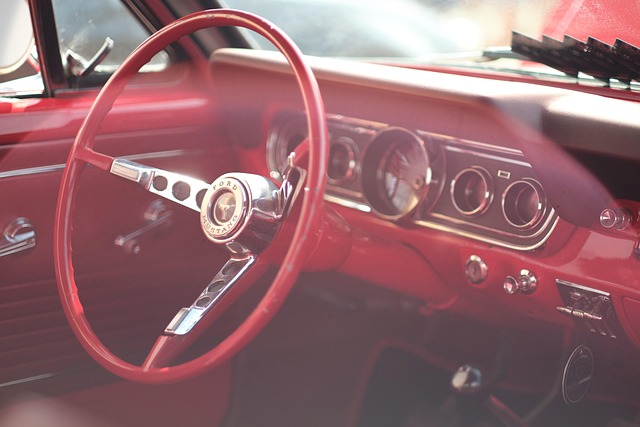
The future of automotive refinishing is poised for significant transformation, driven by technological advancements and evolving consumer expectations. One prominent trend is the adoption of advanced automation and robotics in painting and finishing processes. These technologies promise improved precision, reduced human error, and faster turnaround times, enabling auto shops to offer higher-quality services at competitive rates. For instance, robotic paint systems can ensure consistent coating application, leading to better aesthetics and longer-lasting finishes.
Additionally, the integration of artificial intelligence (AI) and machine learning is set to revolutionize car damage repair and auto maintenance practices. AI algorithms can analyze complex data sets, predict maintenance needs, and even suggest personalized refinishing solutions based on vehicle history and environmental factors. As a result, auto repair services will become more proactive, preventive, and tailored to individual cars, ultimately enhancing customer satisfaction and the overall sustainability of the automotive refinishing industry.
The automotive refinishing industry is undergoing a significant transformation, driven by advanced tools and technologies. As we’ve explored through this article, the evolution of these tools has not only improved efficiency and quality but also paved the way for future innovations. Game-changing technologies like AI, automation, and innovative materials are set to revolutionize the industry even further, offering exciting prospects for professionals and consumers alike. By staying informed about these trends, automotive refinishers can adapt and thrive in this dynamic landscape, ensuring they remain at the forefront of the ever-evolving automotive refinishing market.
